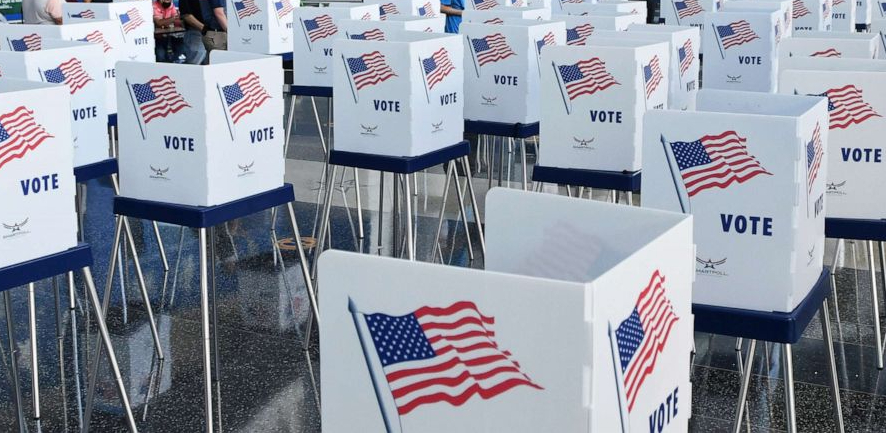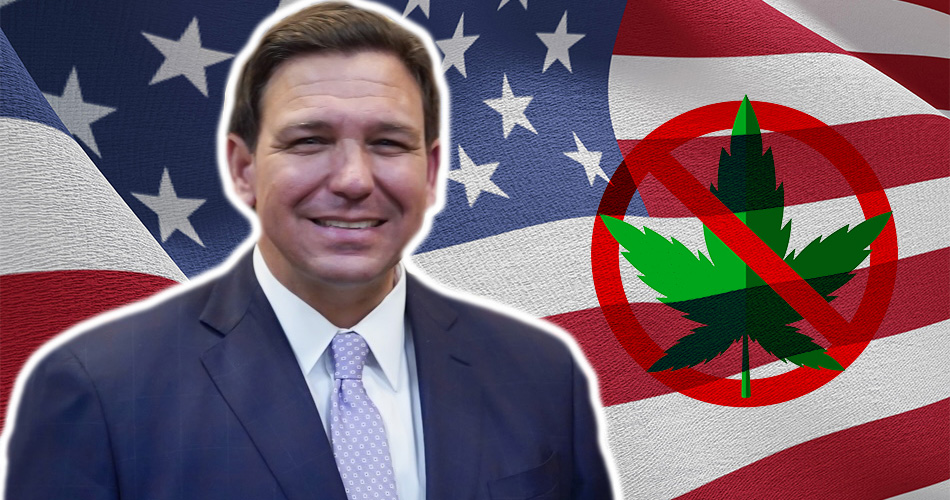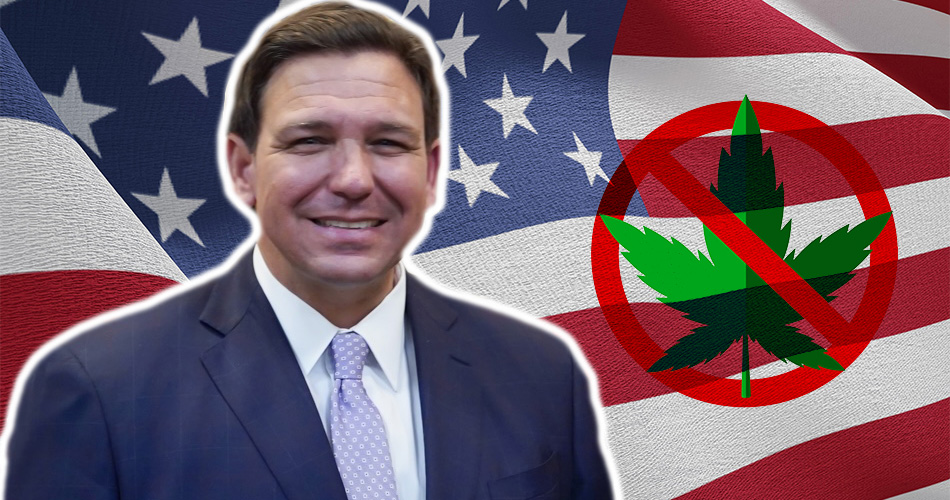By Richard Luthmann
Florida voters will face six significant constitutional amendments in November, each with the potential to bring about significant changes. Two of these, legalizing recreational marijuana and guaranteeing abortion access, stand out as particularly consequential. These amendments and four others will require a 60% approval to pass, underscoring the urgency of the voters’ decision.

Amendments 3 and 4 are “hot-button” issues that will drive voters to the polls, potentially affecting all races up and down the ballot in this Presidential year.
Amendment 3 – Recreational Marijuana
Amendment 3 would legalize recreational marijuana, allowing adults 21 and older to possess up to three ounces and five grams of cannabis concentrate. Smart & Safe Florida is the group leading the campaign. They have raised nearly $55 million, primarily from Trulieve, the state’s largest medical marijuana operator.

Governor DeSantis and other top conservatives oppose the measure. DeSantis warned it could lead to “prolific pot smells” and claims it would limit state regulation. Smart & Safe Florida counters that the Florida Constitution and Supreme Court precedent permit recreational marijuana regulations.
Florida Constitutional Amendments: Reaching Sixty Percent
Steve Schweich, who has served as campaign director for six successful cannabis reform ballot initiative campaigns since 2016, acknowledged in a statement from the cannabis policy reform advocacy group that achieving the super-majority of votes needed for success will not be easy.
“The challenge in Florida is reaching the 60% mark for any amendment,” said Schweich. “We need a well-funded campaign, but just as importantly, we need a strong grassroots operation that can mobilize support and turn out pro-legalization voters.”
More than one million voters signed petitions to place Amendment 3 on the ballot for the 2024 general election. If passed, the constitutional amendment would allow the state’s current providers of medical marijuana, which was legalized in Florida in 2016, to begin selling cannabis to all adults aged 21 and up. Adults would be allowed to purchase up to three ounces of marijuana at a time, including no more than five grams of cannabis concentrates.
The bill does not include provisions to expunge past cannabis convictions or the home cultivation of marijuana, which activists feared would lead the Supreme Court to block the measure based on state laws that limit ballot initiatives to a single subject.
The proposed constitutional amendment also allows state lawmakers to authorize additional adult-use cannabis business licenses, although the legislature is not required to do so. The initiative retains Florida’s current vertically integrated business structure, which requires operators to control the production and marketing of marijuana from seed to sale.
If Florida voters approve Amendment 3 in the November general election, it will take effect six months after election day, adding the state to the list of states that have legalized recreational marijuana.
Amendment 4 – Abortion ‘On Demand’
Amendment 4 would guarantee abortion access in Florida until fetal viability, generally around 24 weeks. It would also allow abortions necessary to protect a patient’s health. This follows the Florida Supreme Court’s approval of a six-week abortion ban, effective May 1.

Pro-Abortion group Floridians Protecting Freedom is leading the campaign for the amendment. This left-wing-funded coalition has raised nearly $20 million from abortion providers and progressive interests, raising $8 million in the first two weeks of June. A political committee opposing it raised over $107,000 during the same period.
Voters will decide on the future of abortion in the state in the November general election, alongside other states like Colorado, Maryland, and South Dakota. Florida Republicans, anti-abortion, and faith-based groups, including the Knights of Columbus, strongly oppose the measure.

“Not only would the vague language of Amendment 4 repeal parental consent laws and place the entire decision-making process in the hands of a judge, this Abortion ‘On Demand’ law is incompatible with religious liberty, conventional morality, and traditional values,” said Lou Ortiz, S.K., an Honorable Fourth Degree Knight from West Palm Beach.
Ortiz and other Florida voters are preparing to decide on the future of abortion two years after Dobbs v. Jackson Women’s Health Organization overturned Roe v. Wade on June 24, 2022. This landmark ruling led to the issue’s return to the state level.
Abortion Facts
Abortion is now banned at all stages of pregnancy, with limited exceptions, in 14 Republican-controlled states. In three other states, it is forbidden after about the first six weeks. In May, Florida replaced its 15-week abortion ban with a six-week ban.
Amendment 4 states, “No law shall prohibit, penalize, delay, or restrict abortion before viability or when necessary to protect the patient’s health, as determined by the patient’s healthcare provider.”
Nearly two-thirds of known abortions last year were provided with pills rather than procedures. About 6,000 people a month in states with abortion bans receive pills prescribed via telehealth and mailed by providers in states protecting them from prosecution. Most Democratic-led states have taken action to enhance abortion rights. Colorado, Massachusetts, New York, Vermont, and Washington have laws safeguarding these medical providers.
The U.S. Supreme Court recently rejected an effort to overturn the FDA’s approval of mifepristone, a key drug for medication abortions. Legal battles continue, with the federal government’s lawsuit against Idaho’s abortion ban, which includes emergencies, being a notable case.
The Other Amendments
Four other Amendments are on the ballot.
Amendment 1 – Partisan School Board Members
This amendment would make district school board elections partisan, starting in 2026. In 1998, Florida voters approved a measure mandating nonpartisan school board races. However, recent debates over COVID-19 measures and accessible books have heightened political tensions in these elections.
Governor Ron DeSantis has actively influenced school board races, aiming to flip seats in upcoming elections. Proponents argue this amendment will increase transparency, while opponents fear further politicization.
Amendment 2 – Right to Hunt and Fish

Amendment 2 would establish a constitutional right to hunt and fish in Florida, joining around two dozen states with similar protections. Lawmakers overwhelmingly supported the amendment, highlighting the importance of these activities in Florida’s traditions and economy.
Conservationists, however, express concerns. In an Orlando Sentinel op-ed, Clay Henderson wrote, “Often the preferred means to conserve fish and wildlife is to limit hunting and fishing to protect their numbers.”
Amendment 5 – Homestead Annual Inflation Adjustment
This amendment would adjust the homestead property tax exemption for inflation. This measure would potentially save property owners money but cost local governments millions in reduced revenue. Lawmakers in favor highlight the savings for homeowners, while opponents worry about the financial impact on local governments.
A legislative analysis estimates a reduction of non-school local government property taxes by nearly $23 million in the 2025-26 fiscal year. This number projects to reach almost $112 million within a few years.
Amendment 6 – Public Campaign Financing
Amendment 6 proposes repealing public campaign financing. Candidates for governor, lieutenant governor, attorney general, chief financial officer, and agriculture commissioner can receive public financing. Public funding was enshrined in the state Constitution after a 1998 amendment.
Supporters see this repeal as a way to save taxpayer money. Opponents argue it disadvantages underfunded candidates against well-financed opponents. A similar repeal attempt in 2010 failed, gaining less than 53% of the vote.
Election Day Details
Election Day is November 5, 2024. The deadline to register to vote in Florida is October 7. Eligible voters can register at RegisterToVoteFlorida.gov or through a county Supervisor of Elections office.
As Florida voters prepare for the November elections, the outcome of these amendments could significantly impact state policies and the lives of its residents. The debates surrounding these issues highlight the diverse opinions and high stakes involved.


Leave a Reply